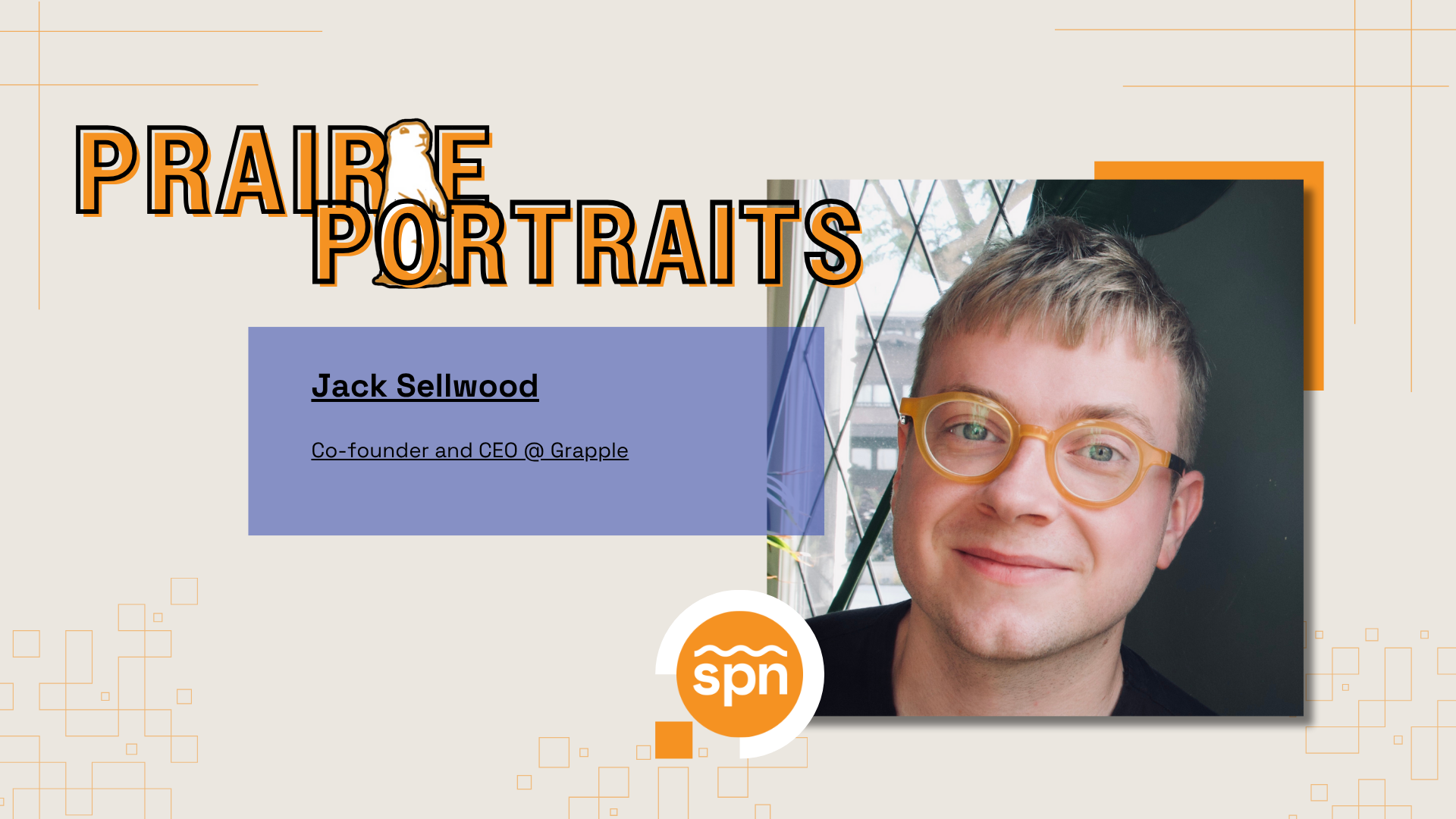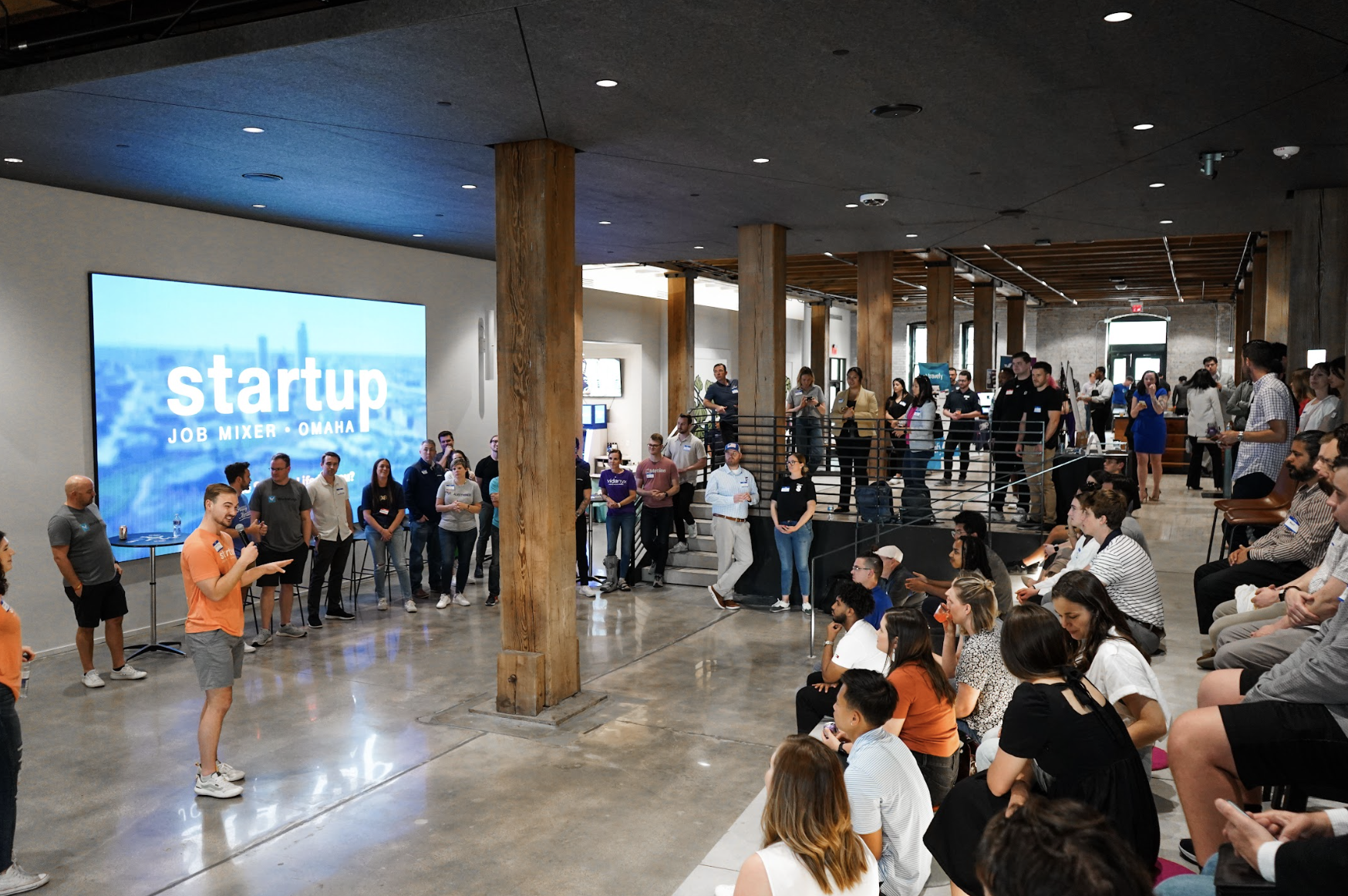Meet Jack Sellwood, Co-founder and CEO @ Grapple
Grapple is a data platform that uses AI and app integrations to easily help finance, sales and marketing teams compile, analyze and share business information.
Sellwood and his co-founder were accepted into the first Techstars Founder Catalyst Program for Omaha, and Grapple was a finalist in the 2025 Silicon Prairie Startup Week Pitch Competition.
What inspired you to become an entrepreneur or support other entrepreneurs?
I don’t think there was a distinct moment where I was like, “I’m going to be an entrepreneur.” When I was a kid, like in middle school, I was good at computers. So, I started fixing computers for other people.
I was a golf caddy and lawn mower at the time, and I realized, “Hey, I can stay in air conditioning and make way more money fixing computers than being in the hot outside.”
I did that for a while through my teenage years and then started my first business in high school. We were a small digital agency, and I really just liked working with people to solve their problems.
When I got to college, I was running this small agency at the same time. It was really difficult to do both. So, I was like, “Should I do school? I suppose I should make money — that sounds good.”
I dropped out of college and went full time on the business. I did that for another few years and then eventually realized I want to be building products.
When you give someone a product, it’s so much more durable than a service. When you actually put a product in the world and someone else uses it to make something, that’s really cool. Building products that give people who are less technical the ability to do things that are technical is really where I get excited.
When I was at Flywheel, I was technical product manager over developer tools. That was helping developers be better developers. Then at Grapple, we’re helping people who are not data engineers; they probably don’t know how to code. We’re helping them do data science and be their own data engineers. Giving people the tools to create is really motivating for me.
Ultimately, most entrepreneurs I know, it’s not just about the money. It’s not just a get-rich-quick scheme. For those people, it’s like an act of service. They see something in the world that’s in disarray, that they don’t love, and they want to make it better.
I think that that pursuit is very honorable and very motivating.
What advice would you give yourself if you could go back in time to when you were just starting out?
I was really young, a senior in high school, when I really started working for other businesses. I didn’t take enough time to build real core competencies. I did a little bit too much of like, “Yeah, sure, I can figure that out.” At different points, it got me in hot water.
Ultimately, I built a successful business with lots of clients that loved working with me and the company I was building. But I put too much pressure to do too much too fast.
I ran my agency for like five or six years and then stepped away to go do product management. Working in other people’s businesses taught me so much, and that experience was so rich. I built real core competencies during that time, like how to manage a team, how to do marketing and how to work meaningfully with other people towards a big milestone.
Slowing down a little bit would have actually been really helpful, collaborating a little bit more. I maybe would have accelerated my success sooner if I’d been like, “I don’t know what an income statement is. I don’t know how to do strategic planning.” I suppose the root of that is vulnerability.
As an entrepreneur, you’ll find something that you’re good at that the world needs. Working on that thing might take different shapes. You should be open to following wherever that goes.
It might not always be your own company that you have 100% ownership of. It might be working on another team or having co-founders. It might be a hobby on the side. Just keep an open mind.
How do you stay motivated when things feel overwhelming — or stagnant?
Go for a walk. We’re on our phones so much. We’re being pinged with notifications. We’re consuming podcasts and audiobooks and a whole bunch of stuff.
Sometimes, the best thing is to just go without your phone or with it totally silent — just listening to the birds and walking for two hours.
I’ll be the first to admit that sometimes, if I’m really working through something, I will talk to myself on a walk. There’s something about the pace of the movement, of the steps, and reorganizing all the things that feel overwhelming.
On the stagnant side, noticing everything around you is a good way to open your mind up to new ideas and new possibilities. When you’re out on a walk, you encounter birds and flowers, or if you’re in the forest, beautiful trees and things.
Walking and leaving so much more space for background processing is something that’s helped me a ton.
What is the biggest challenge you’ve overcome and how did you overcome it?
Admitting to myself that I was now capable. I actually had the idea for Grapple almost three years ago. And when I got excited about it, I felt guilty.
I went for a walk in the woods and contemplated this. I talked to a friend and realized how silly it was that I was rejecting this. Ideas are not guaranteed. Ideas are gifts when you have them. I admitted to myself that I wanted to build this idea.
Maybe the shortest way to put all that is imposter syndrome. I didn’t think I could build it, and I didn’t think the world needed it. What I wish I would have done differently is committed earlier and stronger to the idea.
It was just time, working on it little by little and continually convincing myself that the world needed it and what I had come up with was novel. Innovation happens in those dark moments, those dark corners.
I think people should just believe in themselves more while still staying grounded in reality.
How can the Nebraska community support you?
Nebraska needs more technical founders, and the state needs to do everything they possibly can to encourage technical founders to live and work in Nebraska. You can totally build an awesome business as a non-technical founder, but the advantage that technical founders have is their breadth of skill sets and depth is much greater.
They can code, but they can also probably talk to customers. They can code, but they can also do marketing. They can code and do sales. Maybe you can’t as a solo founder, or as a technical founder, do everything in the business. But usually, you can do code plus something else.
We need more technical founders. We need more people willing to make that leap. With vibe coding and everything, it’s more possible than ever.
And two, the economic incentives need to be that we’re going to make it possible for technical founders to build stuff that people need and love as easily as possible.



Leave a Reply